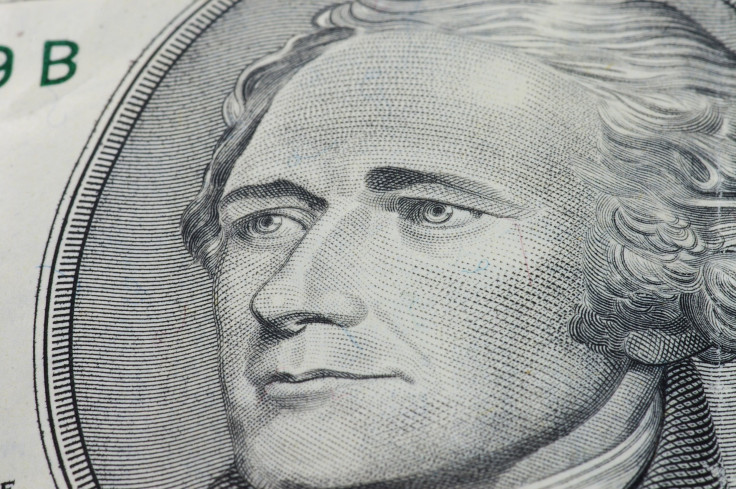Was Alexander Hamilton President? Americans Are Really Bad At Identifying Who Was And Wasn't A Past President

Many of us were required to commit long lists of people or things to memory during our school years. The periodic table, the capital cities of every state, and every person who has ever served as the country’s president were all common ones. Turns out Americans are pretty good at picking out the names of our presidents — but they falsely attribute presidential status to a few people as well.
A study from memory researchers at Washington University in St. Louis confirms, among other things, that most Americans are confident that Alexander Hamilton was once president of the United States. While the founding father certainly played an important role in political history, and his face graces the $10 bill, he was never president.
“Our findings from a recent survey suggest that about 71 percent of Americans are fairly certain that Alexander Hamilton is among our nation’s past presidents,” said Dr. Henry L. Roediger III, a human memory expert at Washington University, in a press release. “I had predicted Benjamin Franklin would be the person most falsely recognized as a president, but Hamilton beat him by a mile.”
He said the interesting thing is that the confidence in Hamilton’s once-presidency was fairly high — higher even than the confidence for a few actual presidents. Roediger’s past research has suggested that as a nation, we’re pretty good at naming the first few and last few presidents in the order they served. Less than 20 percent of Americans, however, can remember more than the last eight or nine presidents in order. The current study focuses on something a bit different, Roediger said, because it’s designed to assess how well Americans can recognize the names of past presidents, rather than the bigger challenge of directly recalling the names and listing them.
“Our studies over the past 40 years show that Americans can recall about half the U.S. presidents, but the question we explore with this study is whether people know the presidents but are simply unable to access them for recall,” Roediger said.
The experiment involved 326 people taking an online survey in which they were asked to identify past presidents when presented with a list of names. The list included real past presidents, non-presidents like Hamilton and Franklin, and even other non-famous common names like “Thomas Moore.” With each response, participants also indicated their level of certainty about their choice on a scale of 0 to 100.
The rate for correctly recognizing past presidents was 88 percent — above recall but far from perfect. Some presidents, including Franklin Pierce and Chester Arthur, were recognized less than 60 percent of the time, while Hamilton was more frequently identified as president than several actual presidents. Participants were even more confident in this choice, rating their sureness as 83 on the 100-point scale. Three other prominent figures from American history were identified as presidents: Hubert Humphrey, John Calhoun, and Benjamin Franklin. All of the men were somehow involved in politics.
“These factors may account for their general familiarity in American history, but if subjects cannot recollect their roles, then false recognition as a president may occur because subjects cannot oppose the high name familiarity with knowledge of their actual roles,” Roediger explained. “John Calhoun is a surprise, because he was a supporter of state rights and slavery, but apparently people remember the name but do not know why they know it.”
Interestingly, the false name “Thomas Moor” was chosen as a past president by nearly one third of the participants.
“Our best guess is that the Anglo-Saxon structure of his name, the frequency of both parts of the name, and possibly his confusability with Sir Thomas More, the counselor to King Henry VIII, may have contributed to the name’s familiarity and false recognition,” Roediger said.
The researchers said that names familiar in the right context may be recognized falsely in that context. The study adds knowledge to the field of research focusing on how people remember history — a line of study called collective memory, or historical memory. The findings also spark new ideas about how lasting fame is shaped by human memory function.
Source: Roediger H, De Soto K. recognizing the Presidents: Was Alexander Hamilton President? Psychological Science. 2016.
Published by Medicaldaily.com



























